School Phobia: A Parents' Guide
by Charlotte Ashcroft on Mar 29, 2022
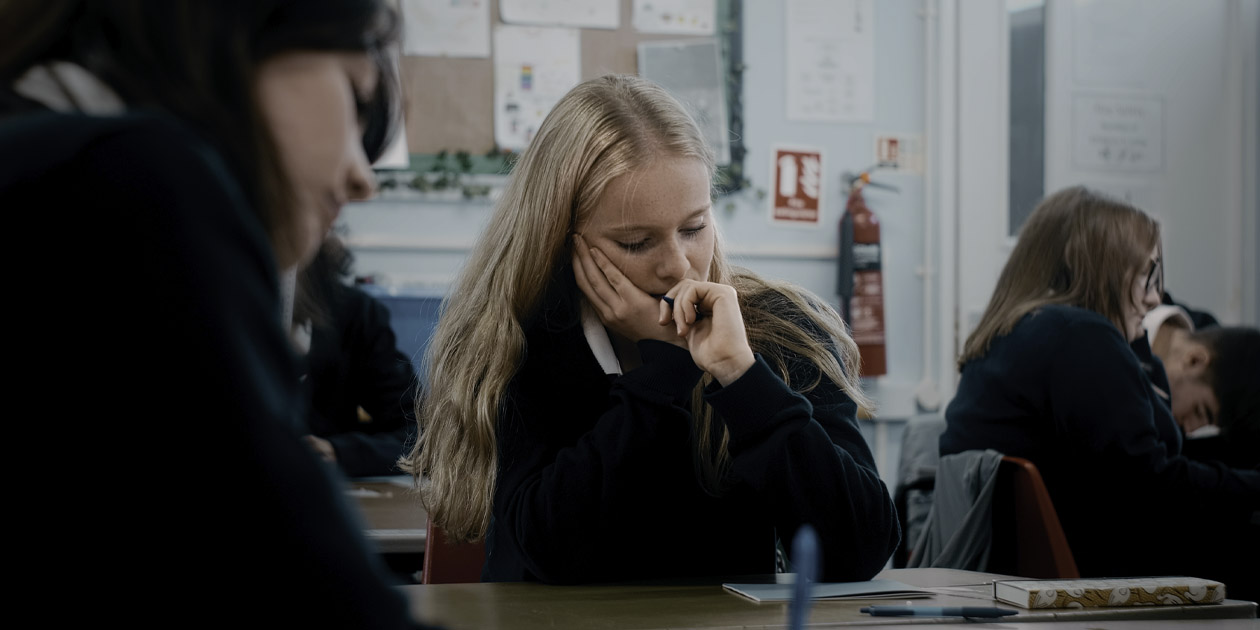
We can all relate to the feeling of not wanting to go to school. However, for children with school phobia, their anxiety about school goes far beyond the usual reluctance we’re all familiar with. If you’re wondering if your child is showing symptoms of school phobia, here are some pointers to help:
What is school phobia?
Children who are school phobic feel highly anxious about attending school and may try to avoid going as a way of managing. They might miss a few days of school a month, or may stop attending altogether. Their anxiety about school may be so intense that they become physically unwell.
School phobia is sometimes called ‘school refusal’, but for children with school phobia, the problem is deeper than an unwillingness to do as they’re supposed to. To understand the phenomenon, it is more helpful to think in terms of the feeling (‘my child is extremely anxious about going to school’) rather than the behaviour (‘my child is refusing to go to school’).
Avoiding school is a way for school-phobic children to protect themselves from something that feels scary and overwhelming. For some, the prospect of school may feel so threatening to their wellbeing that they avoid it altogether. Poor attendance might traditionally be understood as a behaviour to ‘fix’, but when a child is avoiding school due to mental health issues, warnings, consequences and sanctions are unlikely to help.
What does school phobia look like?
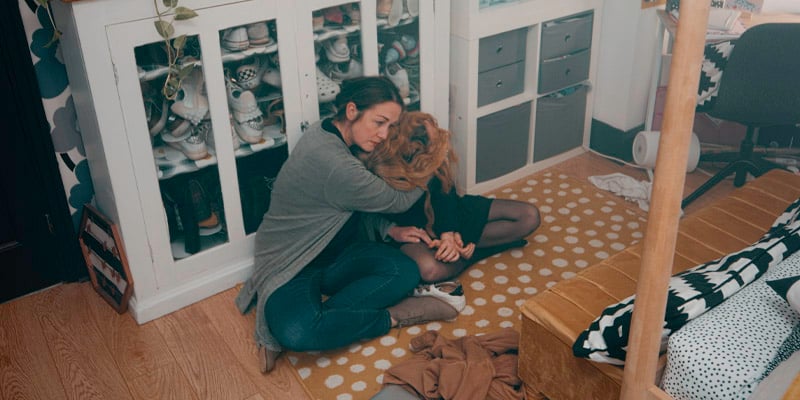 The most prominent sign of school phobia is that a child stops attending school. However, there are other signs and symptoms to look out for, that may indicate a child is feeling highly anxious about school:
The most prominent sign of school phobia is that a child stops attending school. However, there are other signs and symptoms to look out for, that may indicate a child is feeling highly anxious about school:
- Frequent complaints of stomach ache and headaches: your child may miss school due to frequent bouts of stomach ache, pains or dizziness that have no underlying medical cause.
- Unusually tearful and emotional: your child may respond particularly emotionally to everyday situations, to an extent that goes beyond the mood swings and outbursts that are typical for their age.
- Emotional outbursts before or after school: some children with school phobia become emotional before school, or beg not to go. Others may mask how they feel whilst at school, only to come home and have an emotional meltdown that may feel like it has ‘come out of nowhere’.
- Repetitive anxious thoughts: your child may worry compulsively about small details, such as whether they gave a correct answer in their homework, or whether they’ve packed their bag with everything they need.
- Shutting down and withdrawing: your child may spend a lot of time in their room and show little interest in socialising or going out of the house.
Why do some children suffer from school phobia?
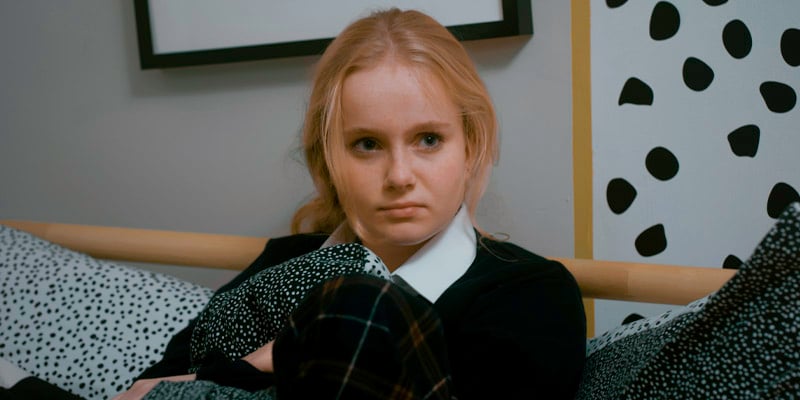
Understanding the reasons why your child is feeling fearful of school is one of the first steps to getting them the support they need. Reasons that children avoid school include:
- A mental health condition: conditions such as social anxiety, generalised anxiety disorder or depression can make the prospect of going to school terrifying. School phobia is also particularly common in children who experience significant separation anxiety.
- An unrecognised additional need: children may refuse to go to school if they have been trying to cope with a recognised learning difficulty or developmental disorder for a long time
- School environment: avoiding school may be a way for children to protect themselves from bullying or a hostile school environment. Some children become reluctant to attend school after a traumatic incident in school, such as an assault.
- Home environment: children whose home life is turbulent and chaotic may become emotionally dysregulated easily and find school overwhelming
- Life events: school phobia is more common in children who have experienced a difficult life event, such as a family break-up or parental ill-health. They may want to stay home out of a worry about what will happen if they’re not there.
How do I help my child?
Now that we understand more about school phobia, what can we do to help children who are struggling with it?
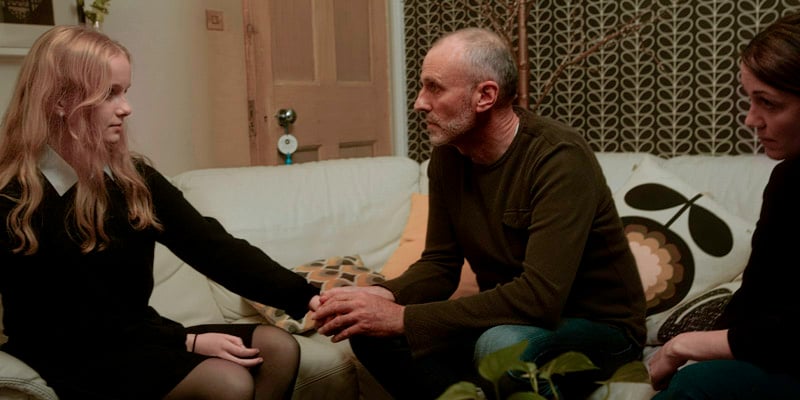 1. Get support
1. Get support
Be proactive in looking for support early on. Understanding which issues have contributed towards your child’s school phobia will help you figure out where to look for help. If your child is struggling with anxiety or depression, they may want to speak to a counsellor.
If you think your child has significant social, emotional or health care needs, you can also make a request to the Local Authority for an Education Health Care Plan assessment. Alternatively, if home life has become overwhelming due to financial struggles, domestic abuse or mental illness, then you can ask your GP for a referral to 'Early Help', which is a Local Authority intervention.
2. Validate your child's feelings
If your child is able to open up about how they’re feeling, listen and acknowledge how they feel, without trying to downplay their experience. It can feel desperate to see your child missing day after day of school, but try not to exert pressure on them in the form of scare tactics (‘the longer this goes on, the worse it’s going to be for you’). This will likely feed into the negative thoughts they’re already having and may deepen their anxieties.
Avoid: “It’s not that bad” or “You have so many things to feel lucky for!”
Try: “I’m sorry things have been so tough for you” or “What can I do that will help?”
3. Work with the school
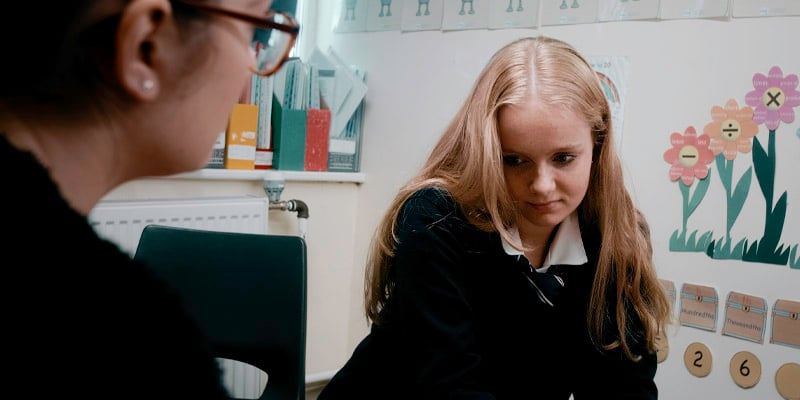 Keep in regular contact with their school and discuss what additional support they can provide to help your child. This may involve introducing your child to a pastoral worker or agreeing on a reduced timetable. Teachers may also be able to help identify triggers that contribute to your child’s anxiety.
Keep in regular contact with their school and discuss what additional support they can provide to help your child. This may involve introducing your child to a pastoral worker or agreeing on a reduced timetable. Teachers may also be able to help identify triggers that contribute to your child’s anxiety.
4. Agree on coping strategies and boundaries
Find some coping strategies that your child is willing to try. They may find it helpful to keep a diary or to try mindfulness exercises or yoga.
Agree on some boundaries so that days still have meaning and structure to them even if your child isn’t in school. If they have withdrawn and don't want to leave their room, take things one step at a time. Break down bigger goals into small chunks, such as getting out of bed, or having a shower. Consider each of these an achievement, rather than comparing it to what they ‘should’ have done that day.
5. Recognise your own feelings
It’s common for parents of children with school phobia to feel frustrated, guilty, or hopeless. You may veer from feeling anguished over your child’s difficulties to feeling angry that they can’t just ‘sort themselves out’. When things feel tough, consider talking to someone about how you feel, whether they’re a friend or counsellor. It’s important to try to separate your own feelings from your child’s, and to find ways of managing your feelings so that they don’t impact your child’s emotional wellbeing.
Most of all, acknowledge that your consistent efforts and understanding are what will make the difference to them in the long run. If you have concerns about your child's mental health, remember that professional support is available and seeking help early
Not sure when to seek support?
At Mable Therapy, we understand how overwhelming it can be to know where to start. That’s why we’ve created a practical resource to help you understand how counselling works and how it can benefit your child.
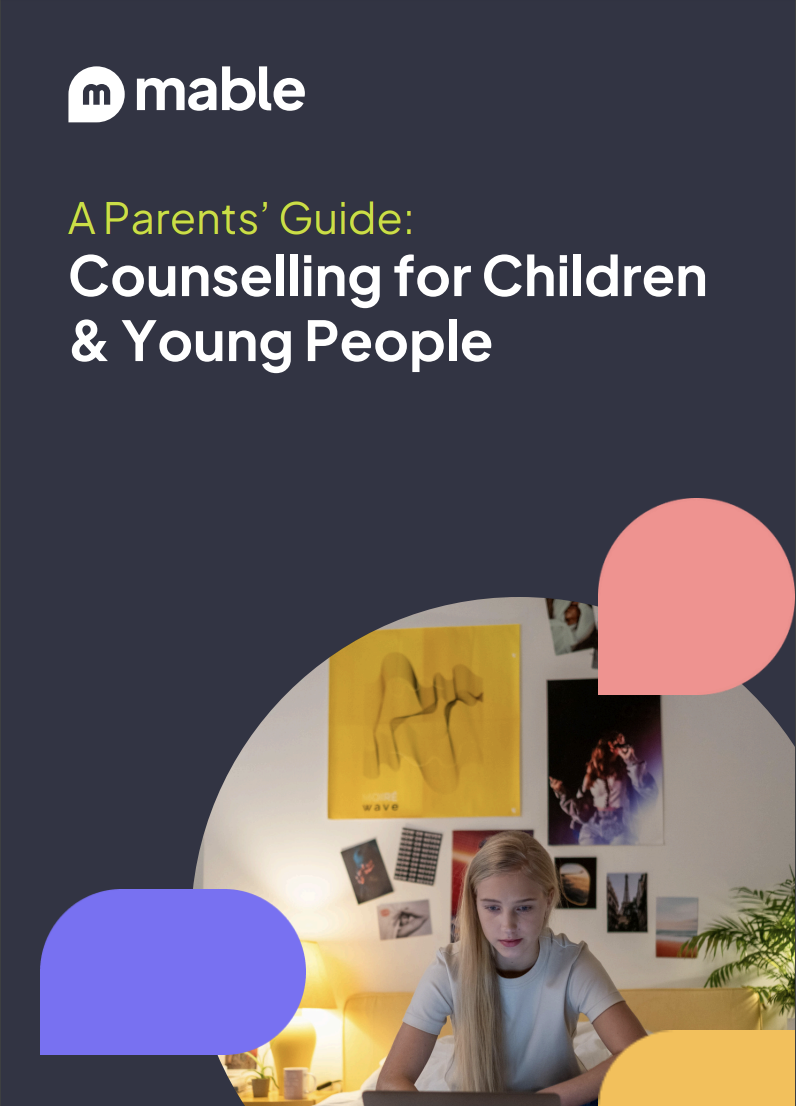
- General mental health (35)
- General Speech & Language (32)
- School Issues (26)
- Counselling (24)
- Primary Schools (24)
- Classroom Behaviour (23)
- Anxiety (22)
- Speech and Language Therapy (22)
- Absenteeism (20)
- SENCOs (20)
- Safeguarding (17)
- Secondary & Sixth Form Schools (16)
- Social Communication (16)
- Funding (14)
- MATs (14)
- Generalised anxiety (13)
- Autism Support (10)
- Language Delay/Disorder (10)
- Relationship Issues (10)
- SEMH (10)
- ADHD Support (7)
- Speech Sounds (7)
- AAC (6)
- Autism (5)
- Hearing Impairment (5)
- Depression (4)
- Selective Mutism (4)
- Anger (3)
- Cleft Lip/Palate (3)
- Downs Syndrome (2)
- Ofsted (2)
- Phobias (2)
- Stammering (2)
- Loss (1)
- Self-Harm (1)
- Suicidal Thoughts (1)
You may also like
These related stories

Does My Child Have Anger Issues?

Preparing for Ofsted 2025: What Schools Need to Know About the New Inspection Reforms
